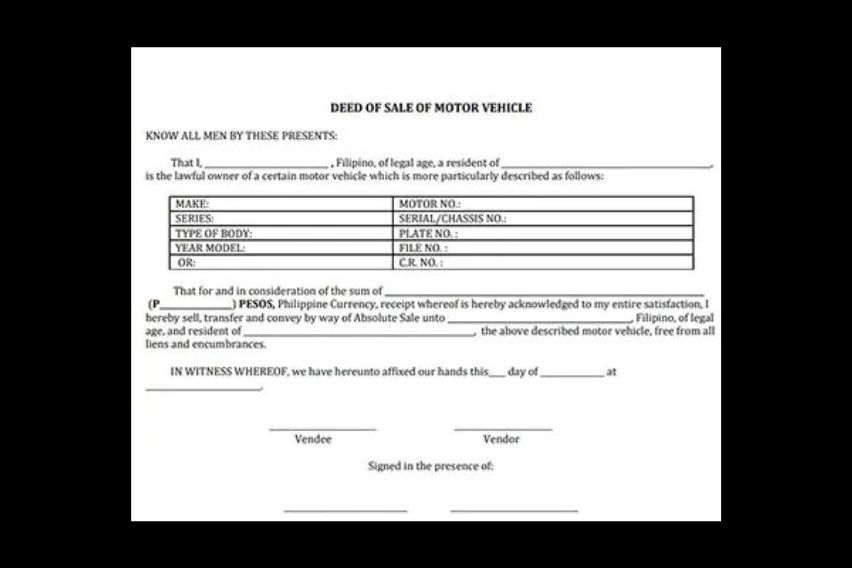

H Hazel Nicole Carreon Jan 27, 2023
One of the documents you will need when selling your vehicle is a deed of sale. The vehicle's details, including its make, body type, model, color, plate number, and engine number, must be listed in the deed of sale. The seller's full name, address, marital status, and the selling price of the vehicle are also provided. The buyer's details should also be included, and both parties must sign the deed of sale before having it notarized by a lawyer.
Once the ownership of the vehicle is transferred, the law mandates that the buyer must register the vehicle at the Land Transportation Office (LTO). However, in some transactions, the buyer's information is left blank, making it an open deed of sale.
This practice makes your transaction with the buyer smoother and can give you fast cash for your car, however, it is not advisable. Until the buyer registers the vehicle in their own name, the legal ownership remains to the seller. This means that the seller will still be responsible if the vehicle gets involved in an accident or other similar situations.

Another disadvantage is that if the buyer violates the law without having ownership transferred to them, you will be the one to receive the ticket for the violation.
Open deed of sale is also usually preferred by those buyers with the intention of selling the vehicle again. For them, it is more convenient because they can resell the car to someone else without having to go to a lawyer and execute a new deed of sale. It may be convenient for a while but it will cause a lot of problems in the future.

It is strongly advised to use a closed deed of sale when selling your car so that you are aware of its future allocation. By doing this, you are assured that you, the seller, only sold the car to the specific buyer listed on the document. It will make sure that nobody else can claim the ownership of the vehicle. This will also inadvertently urge the buyer to transfer ownership into their name so that they may fully assume control of the vehicle. In addition to this, it protects you against any further liabilities that could arise in the future.